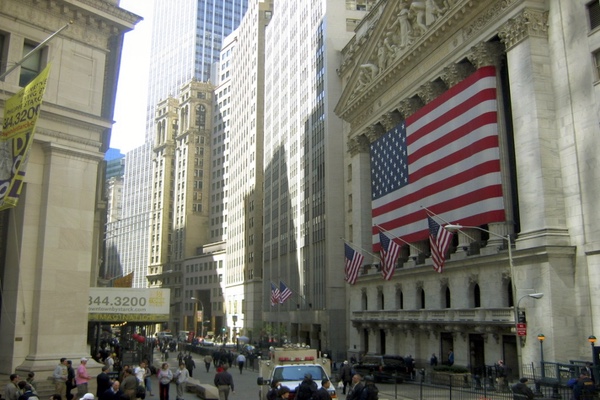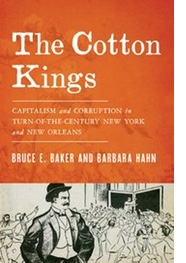4 Things We Believed a Century Ago – And Need to Remember Now

The New York Stock Exchange on Wall Street - CC BY-SA 3.0
Commodity prices wobble, and disaster looms, perhaps. We have been here before, if we could but remember. We are not the first – or the last – to feel that markets beyond our ken and beyond our control shape the realities of our lives, draw in the horizons of our aspirations. We live in an impoverished age. Not a poverty of money, but a poverty of ideas, a poverty of possibilities. A century ago, anything was possible, but today we have convinced ourselves that nothing can be done. The historian C. Vann Woodward wrote in the 1950s about the origins of the Jim Crow system in the South. “The twilight zone that lies between living memory and written history,” Woodward observed, “is one of the favorite breeding places of mythology.” We are at a similar point when we contemplate the economic problems and injustices around us. A generation has come of age, and come to power, which can hardly remember when government was not the problem. We need new policies, based on new values if we hope to exert democratic control over the complex economic activity that governs our lives. But they are not all that new, and to find these policies and values, we need new histories. Here are four things people believed a century ago, before our impoverished era:
 1)
People
in a democracy have a right to control the parameters of economic
activity that shapes their lives.
Debate about this could be framed as a debate about where to draw
lines in the economy between things that are tightly governed and
things that are not: should the government involve itself in where I
spend my money to buy a cup of coffee? What about a house, or health
insurance? However, if we get too caught up in moving that line, a
little to the left or a little to the right, it is easy to be bullied
into giving up the principle of that line altogether. But the
structure and actions of businesses, especially those the people have
granted a corporate charter conferring certain privileges, must be
answerable to the people. Consent of the governed is a bedrock value
of democracy.
1)
People
in a democracy have a right to control the parameters of economic
activity that shapes their lives.
Debate about this could be framed as a debate about where to draw
lines in the economy between things that are tightly governed and
things that are not: should the government involve itself in where I
spend my money to buy a cup of coffee? What about a house, or health
insurance? However, if we get too caught up in moving that line, a
little to the left or a little to the right, it is easy to be bullied
into giving up the principle of that line altogether. But the
structure and actions of businesses, especially those the people have
granted a corporate charter conferring certain privileges, must be
answerable to the people. Consent of the governed is a bedrock value
of democracy.
2) People in a democracy have a right to gather information about businesses and use that information in the regulation of business. Intellectual property law protects innovation, perhaps too vigorously, and no one argues, for instance, that the formula for Coca-Cola should be made public knowledge. But the aspects of business that touch upon the public lives of the people they come into contact with must not be hidden if we are to govern business fairly. Even such simple things as who owns a company, how much money it earns, how much (and how) it pays its employees and investors, how much (or whether) it pays in taxes are routinely hidden, guarded by lawyers and phrases such as “commercial sensitivity.” If a company breaks the law, and it is caught, the details should be made public so as to inform the public in the governance of that company and the business as a whole.
3) There is no such thing as an abstract “market” separate from government. Ever since kings issued royal charters, markets have operated in public spaces under the control of government. Business relies on infrastructure provided by government. Public roads move goods to market, where money (also brought to us by government) facilitates the trade of those goods. Communication takes place over frequencies that belong to all of us, till government allocates them on our behalf. If disputes arise in business, they are settled in courts (government) and the judgments enforced by more government. The market is not the opposite of government. The market is an expression of government.
4) Not all business is bad. In almost any sector, in almost any time, there are examples of good practice, of business operating fairly, openly, legally, to the benefit of its employees, its investors, and the public at large. All too often, such companies are at a disadvantage compared to those less scrupulous. Without good governance, it is a race to the bottom. But those within an industry are often just the ones with detailed knowledge of how business operates, and how it should operate. The honest parts of any sector should provide the model for regulating it, driving dishonest business out.
These are not new ideas. They were articulated, argued over, and implemented long ago, in the Progressive Era. They were the basis of decades of prosperity and the greatest advances in democracy and equality the United States has seen. We need to reread our own history.